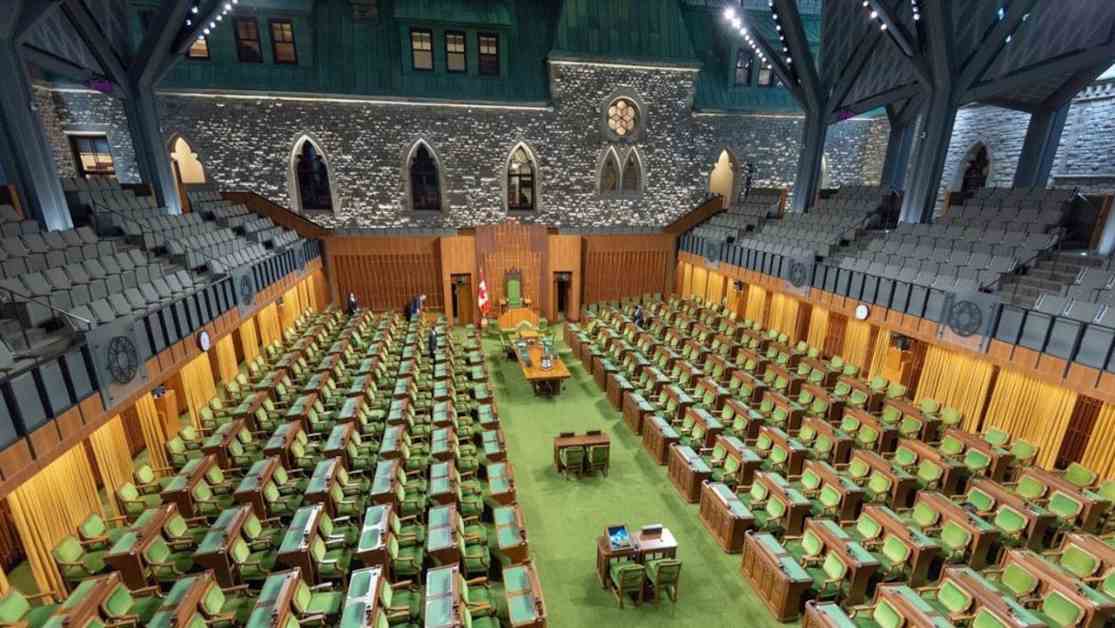Foreign Interference: Should Concerned Parliamentarians be Charged?
The shocking report published last week revealing that federal MPs and senators voluntarily shared confidential information with foreign states has sparked outrage. Observers are demanding that the names of the parliamentarians involved – who have remained anonymous so far – be made public and that they be brought to justice.
Some of the alleged actions amount to treason, according to Wesley Wark, a research fellow at the Centre for International Governance Innovation, who was appalled by the report from the Parliamentary Committee on National Security and Intelligence (CNSI). The offenses of treason outlined in the Criminal Code have been around for a long time and involve, for example, the illegal communication of information to a foreign state during peacetime, explains Mr. Wark. This is a part of the Criminal Code that is there, ready to be used, suggests this national security and intelligence expert.
The CNSI claims that some MPs and senators knowingly aided foreign governments such as China and India in interfering in Canadian politics. The report, focusing on the last two federal elections, alleges that the parliamentarians involved provided confidential state information and accepted bribes, among other wrongdoings.
Preserving State Secrets
However, even though the CNSI report indicates that some of the activities described may be illegal, it also states that it is unlikely that criminal charges will be pursued due to Canada’s long-standing issue of protecting classified information during legal proceedings. In other words, Canadian security services struggle to translate the information in the report into usable evidence in court without compromising state secrets.
This is a fundamental problem, according to Michelle Tessier, who served as Deputy Director of Operations at the Canadian Security Intelligence Service (CSIS) from 2018 to 2023. Other countries are able to protect classified information while allowing a judge to review, challenge, and make decisions based on that information, explains Ms. Tessier. The Canadian judicial system is very cumbersome. There is a lot of information that cannot be made public, and frankly, in my opinion, that is one of the most important things that should be examined: the ability to use this information in court while protecting national security interests, she continues.
Internal Decision
Former CSIS director, Richard Fadden, believes that criminal charges are unlikely to be pursued, but he thinks the House of Commons and the Senate should take the initiative to investigate the allegations. There is a constitutional convention stating that both chambers of Parliament have sole control over their procedures and the treatment of their members, explains Mr. Fadden. I would refer the question to the ethics committee, the Board of Internal Economy, the party leadership, someone within Parliament, to make a decision. Once that decision is made – whether there has been a breach of the oath that MPs take to Canada – I think we should then address the question of whether their identity should be made public or not, adds Mr. Fadden.
Revealing the Names of Parliamentarians?
Before the question of potential legal action is even raised, the identities of the parliamentarians involved need to be known. This is what Conservative MPs are asking for. Criminal prosecutions are not the only tool the government has to counter foreign interference threats, said Conservative foreign affairs critic Michael Chong this week. For him, disclosing the names of the implicated parliamentarians would be a sign of transparency, he argues.
My colleague knows full well that no responsible government would disclose the names of individuals involved in situations that could jeopardize state information, responded Minister of Public Safety Dominic LeBlanc to Mr. Chong last week in the House of Commons.
For his part, CNSI Chair David McGuinty said that the Committee’s hands are tied and they cannot disclose the identities of the parliamentarians mentioned in the report. He added that it is up to the Royal Canadian Mounted Police (RCMP) to decide on the next steps.
Meanwhile, the RCMP stated that they would not comment on whether there is an ongoing criminal investigation into a parliamentarian. The police service confirmed that there are active investigations into foreign interference attempts in the country, including issues concerning democratic institutions.
Cross-party Agreement
To break the deadlock, the Liberal government has offered opposition party leaders the necessary security clearances to inform them about classified information. However, these clearances would limit their ability to speak publicly about the matter.
NDP leader Jagmeet Singh and Green Party co-leader Elizabeth May both said they would accept this offer. Bloc Québécois leader Yves-François Blanchet said he was considering the offer.
Conservative Party leader Pierre Poilievre has so far refused to review classified information on foreign interference, arguing that it would limit his ability to speak publicly on the issue.
Sources: Brennan MacDonald and CBC’s Power & Politics.


















